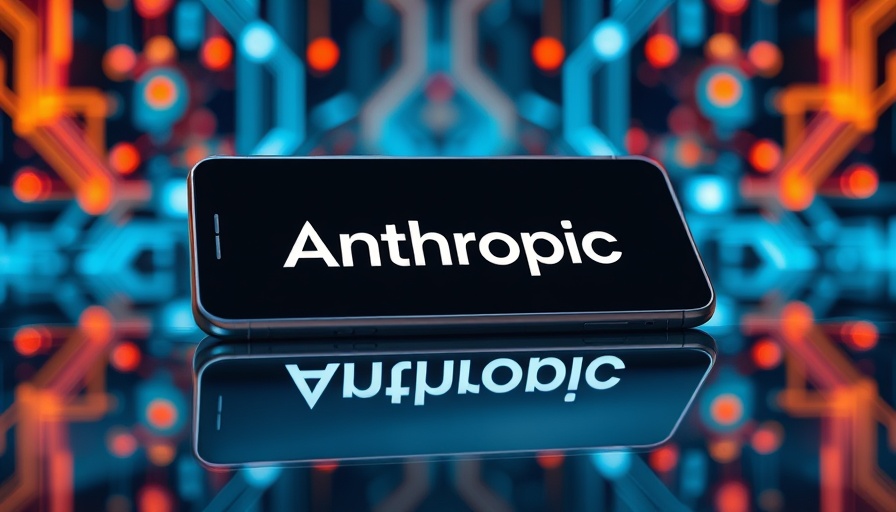
Wins and Losses in AI Copyright: A Crucial Ruling
In a landmark case, Artificial Intelligence (AI) startup Anthropic has achieved a significant legal victory concerning its use of copyrighted materials. The ruling by Senior District Judge William Alsup highlights the complexity surrounding AI training and copyright law. The court determined Anthropic's argument for 'fair use' as it pertains to AI training, asserting that the technology’s utilization of copyrighted works was transformative—a pivotal interpretation that may set a legal precedent for future AI copyright cases.
The Fair Use Doctrine Explained
The ruling centered on the fair use doctrine, which allows for the limited use of copyrighted material without permission when certain conditions are met. Judge Alsup noted that the technology Anthropic employed is among the most transformative seen in the digital era. This notion of 'transformative use' suggests that the AI's ability to create new content or insights from existing materials qualifies it under fair use laws. Chris Mammen, an intellectual property law expert, emphasizes that this decision is pioneering in regard to generative AI cases.
What Lies Ahead: The Piracy Claims
Despite its success in asserting fair use for its AI training methodologies, Anthropic now faces potential financial repercussions. The court's order allows authors to proceed with claims against the company regarding its initial practice of downloading and storing over 7 million pirated books. This act raises critical questions regarding intellectual property rights in the digital landscape. As the authors of these works argued, Anthropic's decision to use these unauthorized materials raises ethical considerations about compensation for creators.
The Financial Stakes for AI Startups
With damages potentially amounting to billions, the implications of this trial could be staggering for AI companies and their operational frameworks. Such financial stakes underline the necessity for clear guidelines and standards, not only for Anthropic but for the entire AI industry navigating the intricate maze of copyright laws. AI startups must now consider their data acquisition strategies carefully, prioritizing ethical practices while seeking technological advancements.
A Glimpse into the Future of AI Training
This case points to the evolving landscape of AI and the challenges it presents. The necessity of paying for digital content, even for training purposes, is bound to influence how AI models are developed. Anthropic's strategy of moving towards legally acquired materials could pave the way for a new norm, emphasizing the importance of ethical queries surrounding AI development and utilization.
Industry Perspectives: Implications for Tech and Marketing Leaders
For CEOs, marketing managers, and business professionals, this case serves as a cautionary tale regarding intellectual property rights in digital innovation. It emphasizes the need for companies to ensure their practices align with legal standards. The balance between leveraging data for technological progress and respecting copyright ownership will be key to sustaining growth in tech-driven sectors. Furthermore, companies need to foster transparent relationships with content creators to build a more sustainable digital ecosystem.
Conclusion: The Importance of Navigating Ethical Challenges
The outcome of this trial will have ripple effects throughout the tech industry, especially for companies advancing AI technologies. As digital copyright laws evolve, understanding these legal frameworks will be essential for ensuring the responsible and ethical adoption of AI. For those in leadership positions, staying informed and growing awareness of these issues can not only safeguard their businesses but also contribute to a fairer digital landscape.
 Add Row
Add Row  Add
Add 




 Add Row
Add Row  Add
Add 

Write A Comment